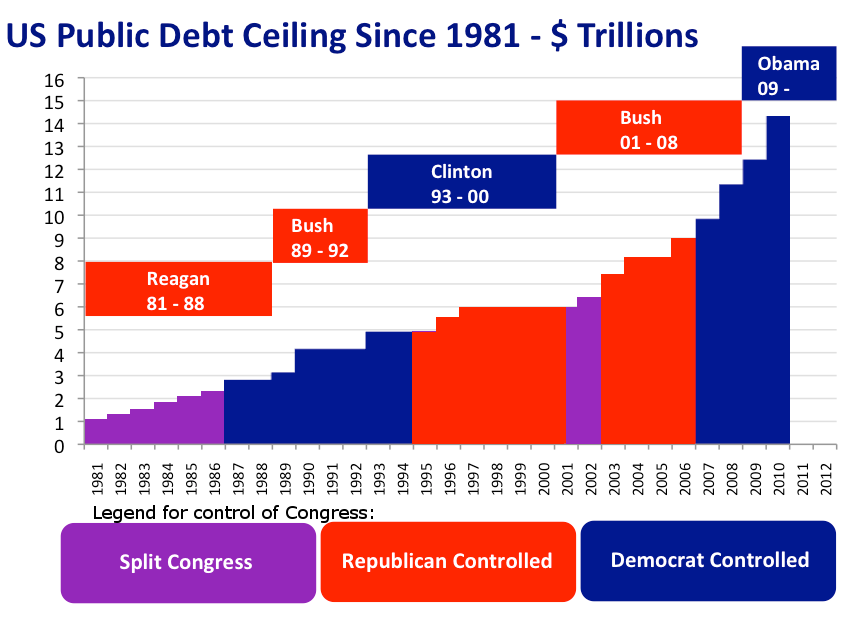A lower-middle-class American ponders the things others might do with his money.
Friday, September 27, 2013
Reason #304: On The Debt Ceiling
The United States had no debt ceiling until 1917--its debt obligations were minor, and sporadic, enough that Congress was able to authorize them on a case-by-case basis. The Second Liberty Bond Act in 1917 set limits on the debt the nation could incur, but they were different from one category to the next, and there was no one absolute limit until 1939. In 1979, noting the insanity of requiring that Congress pass one bill to incur debt and another bill to pay for it, they instituted the Gephardt Rule, which essentially linked the debt ceiling to any raise of the overall national budget--if they wanted another ten bucks, well, then the debt ceiling would have to go up ten bucks. Easy-peasy.
That worked okay for a little while; then came the Republican revolution in 1994. It wasn't until Newt Gingrich and his cronies swept into the lead in Congress that year that the debt ceiling and the budget were once again severed, which is what led us to this point--where Congress can increase spending as much as it wants without having to vote to actually pay for that spending. Brilliant, right?
Anyway, it's true when Obama says that before his administration, no Congress had ever actually used that authorization as a level to extract miscellaneous agenda items from the other party. During a period of divided control of Congress, Ronald Reagan famously had to harangue Congress to allow raises in the debt ceiling eighteen times (and George H. W. Bush seven times, though admittedly, the Democrats were in control by then).
The point is, as much as Republicans are supposed to be the fiscally-conservative party, the debt ceiling's history as a political tool is decidedly bipartisan; since it doesn't actually limit spending in any way, is makes an easy cudgel with which the party not in control of the White House can hammer the party that has control of the White House, on purely rhetorical grounds.
Moreover, the Department of the Treasury has a number of "extraordinary measures" it can enact to continue making payments on existing debt for months beyond a theoretical breach of the debt ceiling, so it's really the perfect rhetorical tool--it sounds bad, and it can hurt perception of the American economy's stability, but Republicans can wave it around as much as they want without doing direct harm to the economy (which is to say, if our credit rating gets downgraded because of their nonsense, they can still blame the president).
Of course, the executive branch has the power to authorize an increase it unilaterally and to hell with Congress, as Nancy Pelosi noted recently. But at this point, I say why not?
Further Reading
Wikipedia: United States debt ceiling
Wikipedia: History of United States debt-ceiling increases
Labels:
congress,
debt,
economy,
government,
taxes
Subscribe to:
Post Comments (Atom)

No comments:
Post a Comment